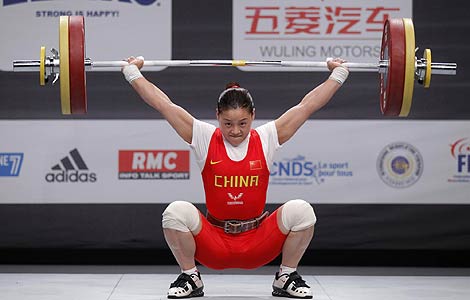Central Europe draws on support from China
Updated: 2011-11-10 07:56
By Andrew Moody (China Daily)
|
|||||||||
PRAGUE - China is providing vital economic support to countries in Central and Eastern Europe (CEE) that otherwise might be dragged down by the eurozone crisis, according to a keynote speaker at a major investment forum in Prague.
Milan Hovorka, vice-minister of industry and trade of the Czech Republic, spoke at the China Investment Forum at the Czech National Bank.
"Once again, we will be counting very much on China's economic resilience at a time when recession is knocking on the European door," he said.
Trade between China and the CEE countries increased 34.1 percent last year to $41.1 billion, according to China's Ministry of Commerce.
Trade with the region is more than 10 times the level in 2001, having grown 32 percent a year over the past 10 years.
"Doing business in China makes very good economic and commercial sense. We need to redouble our efforts to enter the market and develop our business interests there," added Hovorka.
China recognizes that CEE nations could be a major bridge to the lucrative Western European markets by serving as a manufacturing and distribution center for Chinese goods.
On his visit to Hungary in June, Premier Wen Jiabao announced 400 million euros ($548 million) of support for a European logistics base, including an airfield with road access, which would be a hub for Chinese goods in Europe.
Many leading Chinese companies are making substantial investments in the region. Great Wall Motor Co Ltd is set to open a factory in Bulgaria at the end of the year, where it will assemble 50,000 cars annually.
Huawei Technologies Co Ltd said in May that it would expand its distribution center in Hungary, where it expects to employ 3,000 people.
Peter Hyl, executive chairman and founder of the Forum, whose general partner is the Czech car maker Skoda Auto AS, said that international trade was key to the development of China and the CEE countries.
"China is both a growing and developing market and as such it gives European companies the opportunity to be part of the development, profitably of course."
Ren Hongbin, vice-president of the Chinese Academy of International Trade and Economic Cooperation at the Ministry of Commerce, said that some CEE countries still needed to be more welcoming to Chinese investment.
Many CEE countries have substantial trade deficits with China, with their imports often being eight or 10 times that of exports to the world's second-largest economy.
Maris Elerts, deputy director of Latvia's Investment and Development Agency, based in Riga, said one of the difficulties a country like Latvia faced was amassing sufficient quantities of a particular item to be of interest to China.
"Not having very large volumes of delivery is sometimes an obstacle to trade," he said.
Ren said that CEE countries represent attractive markets and major investment opportunities for Chinese companies and he expected to see significant foreign direct investment in the region over the next decade or more.
China Daily
(China Daily 11/10/2011 page13)











